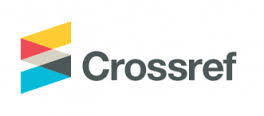Attitudes Towards BTEC among Tenth Grade Students and Their Parents in Irbid District
DOI:
https://doi.org/10.59759/educational.v4i3.992Abstract
The study aimed to identify the attitudes towards business and technology education council (BTEC) among tenth grade students and their parents in Qasaba Irbid District, and the relationship between them. The study sample consisted of (466) individuals, including (233) students from the tenth grade, and (233) parents in Qasabat Irbid district. To achieve the study objectives of, a descriptive approach was used, and two tools related to attitudes towards BTEC were developed, one of which is directed to tenth grade students, and the other to their parents. The results showed that the degree of attitudes of both students and their parents towards BTEC was medium. The results also showed a significant positive relationship between students’ attitudes and their parents’ attitudes towards BTEC. According to these findings, the study recommended the need to motivate students to enroll in BTEC, and to strengthen partnerships between local community institutions and audiovisual media institutions with the Ministry of Education to enhance the value of this type of education in society.
Keywords: BTEC, Attitudes, Tenth Grade Students, Parents, Qasabat Irbid District.
Downloads
References
BTEC International. (2017). Business and Technology Education Council. Yorkshire, United Kingdom: BTEC International.
Eyadat, H. (2018). The level of vocational awareness among 10th primary grade students in the selection of vocational education streams at Bani Obaid District from the point of view of teachers. European Journal of Social Sciences, 58(1), 61-75.
Hinkle, D., Wiersma, W. & Jurs, S. (2003). Applied Statistics for the Behavioral Sciences (5thed.). NY: Pearson Education Inc.
Jawarneh, T. (2013). Barriers to Effective Prevocational education implementation in Jordanian Schools as Perceived by Teachers. Journal of Education and Vocational Research, 4(11), 339-353.
Mortaki, S. (2012) The contribution of vocational education and training in the preservation and diffusion of cultural heritage in Greece: The case of the specialty. International Journal of Humanities and Social Science, 2(24), 51- 58.
Pardjono, P., Suyanto, W., Sofyan, H., & Wagiran, W. (2018). What do vocational teachers, industries, and experts view about the future learning of vocational schools? Advances in Social Science, Education and Humanities Research (ASSEHR), 201(1), 250-255.
UNESCO. (2002). Technical and vocational education and training for the twenty first century. Retrieved on 23 Jan. 2025 from:
https://www.oas.org/cotep/GetAttach.aspx?lang=en&cId=569&aid=836.
Wang, L. (2022). Big Data Analysis Model for Vocational Education Employment Rate Prediction. Scientific Programming, (24), 1 – 9.
Wildeman, E., Koopman, M & Beijaard, D. (2022). Fostering subject teachers’ integrated language teaching in technical vocational education: results of a professional development program. Teaching and Teacher Education, (112), Article ID 103626.


